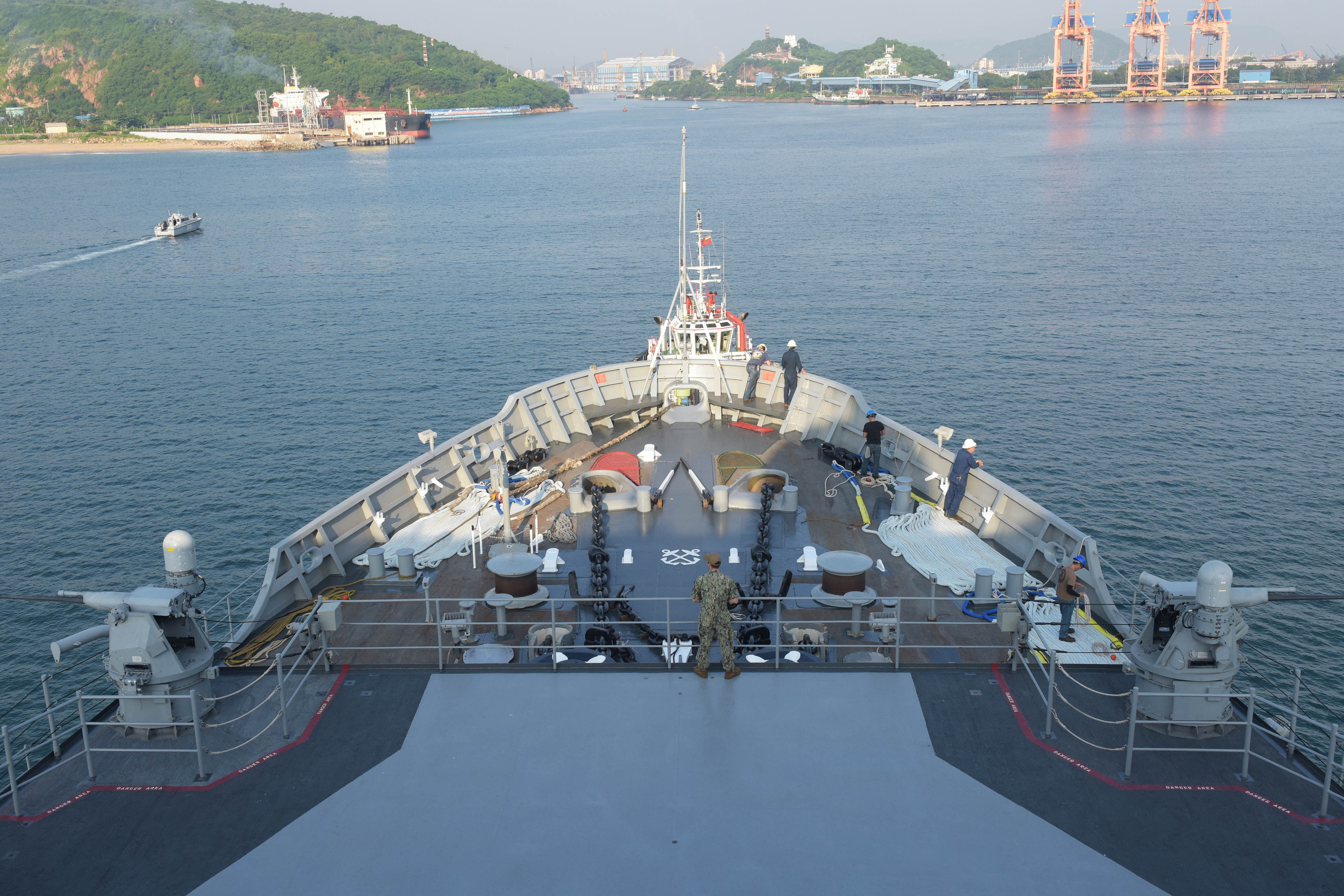
India is favourably considering Australia's keen interest to be part of the next edition of the Malabar naval exercise which is scheduled to be held later this year, people familiar with the development said on Friday.
If India decides to include Australia in the exercise, then it will comprise all members of the "Quad" or Quadrilateral coalition which was set up with an aim to ensure peace and stability in the Indo-Pacific and check China's increasing efforts to expand military influence in the region.
In November 2017, India, US, Japan and Australia gave shape to the long-pending "Quad" Coalition to develop a new strategy to keep the critical sea routes in the Indo-Pacific free of any influence.
India is favourably considering Australia's interest to be part of the Malabar exercise, the people cited above said, adding a formal decision is likely to be taken in the next couple of weeks.
The indication of India's willingness to include Australia in the Malabar exercise comes in the midst of a bitter border row between Indian and Chinese troops in eastern Ladakh.
China has been suspicious about the purpose of the Malabar exercise as it feels that the annual war game is an effort to contain its influence in the Indo-Pacific region.
The Malabar exercise started in 1992 as a bilateral drill between the Indian Navy and the US Navy in the Indian Ocean. Japan became a permanent member of the exercise in 2015.
For the last few years, Australia has been showing keen interest in participating in the exercise.
Defence and security ties between India and Australia have been on an upswing in the last few years.
Last month, India and Australia elevated their ties to a comprehensive strategic partnership and signed a landmark deal for reciprocal access to military bases for logistics support during an online summit between Prime Minister Narendra Modi and his Australian counterpart Scott Morrison.
The Mutual Logistics Support Agreement (MLSA) allows militaries of the two countries to use each other's bases for repair and replenishment of supplies besides facilitating scaling up of overall defence cooperation.